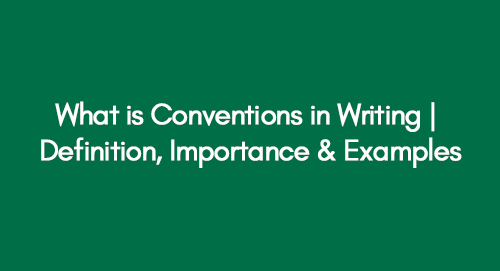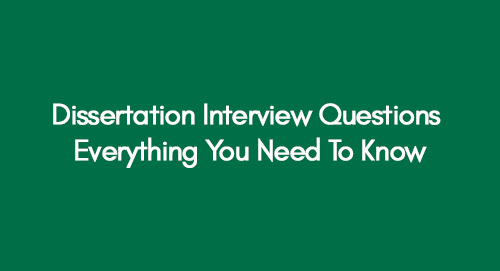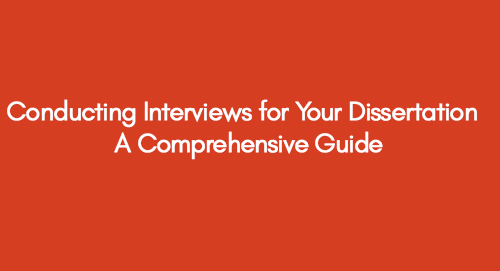
135 Amazing Controversial Psychology Topics in 2025
April 4, 2024
List of the Latest 210 STEM Research Topics
April 26, 2024Writing conventions are a set of established guidelines that writers follow to ensure clear and effective communication. These guidelines encompass spelling, grammar, punctuation, style, formatting, citation, and audience. There are various ways of writing, and each way has its own rules. Following these rules helps writers express their ideas clearly and effectively.
In this guide, you will find a complete guide on the conventions in writing, its importance, examples and what key elements must be included in writing conventions.
Conventions in Writing
Definition
Writing conventions are a set of rules that guide us on how to write correctly. These rules include spelling, grammar and punctuation usage, and paragraphing. Adhering to these rules helps in making our writing easier to comprehend and ensures that our writing meets the usual standards. Different types of writing have their unique conventions that we must follow to convey our message accurately.
Importance of Conventions
Writing conventions are important rules that writers follow to make sure their writing is clear and makes sense. These rules cover things like spelling, grammar, punctuation, and how words are written. By sticking to these rules, writers can make their work easier to read, get their ideas across accurately, and keep their readers interested. Whether it's for school, work, or just writing for fun, knowing and using these conventions well helps writers create great pieces of writing that people enjoy reading.
Examples of Writing Conventions in Writing
Conveying ideas, thoughts, and emotions effectively to readers makes writing more impactful.
- Spelling: Correct spelling is important because it helps readers understand the intended message.
- Grammar: In order to ensure that our sentences are constructed correctly, it is important to follow the rules of grammar. This involves making sure that the words agree with each other (for example, using "he runs" instead of "he run") and maintaining consistency in tense throughout the sentence.
- Punctuation: Punctuation marks, such as commas and periods, serve the purpose of breaking up our writing into clear chunks. They indicate where to pause, mark the end of a sentence, and help us comprehend what we are reading.
- Capitalization: Using capital letters at the beginning of sentences and for proper nouns helps readers understand important information in writing.
- Genre-Specific Conventions: Each type of writing has unique rules that govern it. For instance, storytelling requires characters, a plot, and a setting, while persuasive writing employs arguments and factual evidence. Similarly, instructional writing employs commands and arranges things in a logical order.
Writing Conventions in Different Genres | Key Elements to Consider
Technical Writing
- Purpose: When it comes to technical writing, the goal is to present complex information in a way that is easy to understand.
- Audience: This needs to be clear to everyone, from colleagues to customers.
- Writing Style: Use simple language but include field-specific terms.
- Tone: Keep it professional but not too fancy.
- Structure: Ensure the structure is well organised with clear sections and short paragraphs.
- Format/Formatting: It could be online, on paper, or in a presentation. Make sure to use the right style for things like headings and lists.
Explore Technical Writing Examples
Journalism
- Purpose: Journalists tell us what's happening in the world right now.
- Audience: Anyone who reads newspapers or news websites.
- Writing Style: Just the facts, no extra fluff.
- Tone: Stick to the facts and don't take sides.
- Structure: Start with the most important stuff first and then add details.
- Format/Formatting: Use headlines, names of writers, and dates to help people understand.
Academic Writing
- Purpose: Academic writing shares research and ideas with other experts.
- Audience: Other scholars and researchers who know a lot about the subject.
- Writing Style: Use fancy words and be very precise.
- Tone: Keep it neutral and based on facts.
- Structure: Organise it well with clear sections.
- Format/Formatting: Make sure to cite where you got your information from and use the right style, like APA or MLA.
Writing Conventions for Different Types of Writing
Narrative Writing Conventions: When reading a story, you will come across a narrative that features characters, dialogue, and a clear beginning, middle, and end. If a text has these elements, it is considered a narrative.
Persuasive Writing Conventions: Persuasive writing aims to convince the audience to agree with the writer's viewpoint. It can take different forms, such as speeches, articles, or posters. In persuasive writing, the author often presents a strong opinion at the beginning and end of the text. To persuade the reader, the writer may use factual information, powerful language, and thought-provoking questions.
Need Help with Academic Writing? Get a Response within 24 Hours!
Letter Writing Conventions: When you read a letter, some things show it's a letter. It will have an address at the top, a date, and a greeting like "Dear Sir/Madam". It'll be split into paragraphs and end with a closing like "Yours Sincerely".
Instructional Writing Conventions: Instructions help you do something, like follow a recipe or use a manual. They're usually in a list with numbers, telling you what to do step by step. Instructions don't have talking or stories, just clear directions.
Formal Writing Conventions: Some writing is very formal, like a letter to your boss. It follows strict rules, like not using short forms ("can't" becomes "cannot"). It also avoids slang or casual words. These rules make sure the writing is serious and respectful.
Conclusion
In conclusion, writing conventions like spelling, grammar, punctuation, and formatting are crucial for clear and effective communication. Following these standards helps writers express their ideas clearly and ensures accurate and effective communication.
Get 3+ Free Fashion Dissertation Topics within 24 hours?


























